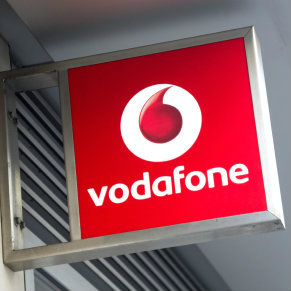Eurobites: Vodafone Portugal hit by cyberattack
Also in today's EMEA regional roundup: Liberty Global spots EVs opportunity; MWingz gets airborne with Comarch software; Proximus tackles digital exclusion.

Also in today's EMEA regional roundup: Liberty Global spots EVs opportunity; MWingz gets airborne with Comarch software; Proximus tackles digital exclusion.
Vodafone Portugal has been hit by a "deliberate and malicious" cyberattack that began on Monday evening. At the time of writing, the attack is still affecting its 4G and 5G networks, fixed voice, TV, SMS and voice/digital answering services. Its 3G network, however, is pretty much back to normal. The recovery process will continue throughout today (Tuesday). Vodafone says it has no evidence so far that customer data has been compromised.
Liberty Global Ventures, the investment arm of Virgin Media parent Liberty Global, has launched a subscription-based electric vehicle charging service in the UK. For a monthly fee of £30 (US$40.62), the "Egg" service offers customers ongoing maintenance and technical support at their homes or places of business. The launch comes just ahead of the UK government's withdrawal of its £350 ($474) subsidy for the installation of vehicle charging equipment – that scheme expires at the end of March.
In a separate announcement, Proximus is launching an "Internet for All" project that it hopes will address the problem of digital exclusion in Belgium, whereby households cannot afford to be connected to the Internet. Qualifying households will be given a modem allowing them to connect to the Internet via a mobile network, together with technical support and 40GB of data per month for a year. The project is being implemented in partnership with various social bodies, such as municipal welfare centers.
French communications regulator Arcep is consulting with the telecom industry on Orange's plan to switch off its copper network. In late 2019, Orange announced that it wanted the shutting down of its copper network to take place gradually, starting in 2023, and be complete by 2030. Stakeholders have until April 4, 2022 to make their feelings known.
Deutsche Telekom has launched its own smart-home app that allows households to collaborate on things like shopping lists so that, in the optimistic words of the operator, "nothing is forgotten and everyone keeps track of everything." The MagentaZuhause app is available for free download for smartphones and tablets in the Google Play Store and Apple's App Store.
TalkTalk was once again named and shamed in the fixed-line department in the quarterly complaints league table compiled by UK communications regulator Ofcom: Together with Shell Energy, TalkTalk generated the most broadband complaints, and it was alone on the naughty step for its landline performance. On the mobile front, Vodafone, Virgin Mobile and iD Mobile picked up the most brickbats.
Ericsson has put out a slightly mysterious press release, saying that it "has received questions from media regarding past compliance related matters in Iraq." In 2019, Ericsson carried out an internal investigation into the matter, in response to the findings of which the company "undertook personal and process remediation." It now says that, as a result of fresh media inquiries, it is reviewing that investigation, but it's saying nothing more at this stage. The plot thickens…
— Paul Rainford, Assistant Editor, Europe, Light Reading
Read more about:
EuropeAbout the Author(s)
You May Also Like




.jpg?width=300&auto=webp&quality=80&disable=upscale)







